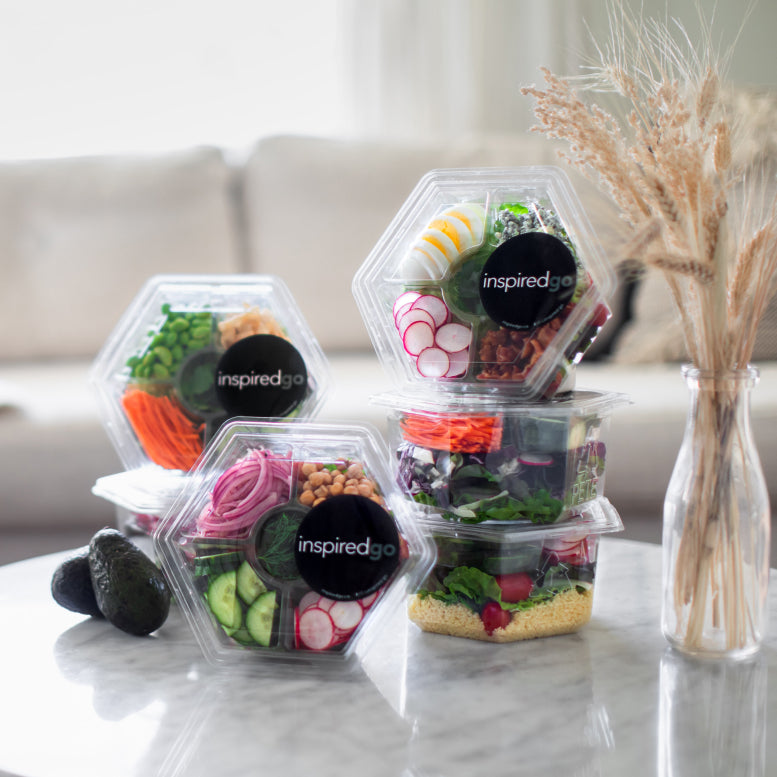What Is A Healthy Heart Diet?
Table of Contents
1. Exploring the Concept of a Healthy Heart Diet
2. How to Eat Healthy for Weight Loss?
3. How Can Meal Delivery Help With Sustainable Weight Loss?
4. How Does a Healthy Diet Support Long-Term Wellness?
1. Exploring the Concept of a Healthy Heart Diet
A healthy heart diet is a balanced eating strategy designed to support cardiovascular health and overall well-being. It's centered around nutrient-dense foods that are low in sodium, saturated fats, and cholesterol, which contribute to heart disease if consumed excessively. Instead, it prioritizes lean proteins, whole grains, fruits and vegetables, healthy fats, and low-fat dairy products. In addition to these core components, a healthy heart diet encourages regular physical activity and portion control. This dietary approach not only helps maintain a healthy weight but also reduces the risk of heart disease and other health complications. Importantly, a healthy heart diet isn't just about restriction; it's about making better food choices, incorporating a variety of foods, and enjoying what you eat. In essence, it's a lifestyle choice committed to enhancing your heart health and overall wellness.
Order fresh salads today →


2. How to Eat Healthy for Weight Loss?
Diet food delivery services are a powerful tool for individuals aiming to lose weight without sacrificing nutrition or convenience. Weight loss-focused meal plans are designed with controlled calorie counts, balanced macronutrients, and pre-measured portions to prevent overeating. Meals often prioritize lean proteins, fiber-rich vegetables, and complex carbohydrates to promote satiety and sustained energy levels. Clear nutritional labeling ensures customers can track their calorie and nutrient intake accurately. Pre-planned weekly deliveries reduce impulsive eating and reliance on unhealthy snacks. By offering consistent, portion-controlled meals crafted to support weight loss, diet food delivery services simplify adhering to dietary goals while removing the hassle of cooking and preparation.
Choose your salads and schedule delivery →
3. How Can Meal Delivery Help With Sustainable Weight Loss?
Achieving and maintaining weight loss isn’t just about cutting calories—it requires consistency, portion control, and the right balance of nutrients. Meal delivery services help customers lose weight sustainably by providing pre-portioned, nutrient-dense meals tailored to weight management. Unlike crash diets, which often lead to temporary results, structured meal plans focus on long-term success by ensuring balanced macronutrient intake while preventing overeating. With options for high-protein, low-carb, or calorie-controlled meals, individuals can select plans that align with their specific goals. By eliminating the guesswork of meal planning and preparation, diet meal delivery services make it easier to stay on track without feeling deprived or restricted.
Get fresh salads and snacks delivered →
4. How Does a Healthy Diet Support Long-Term Wellness?
Inspired Go’s meal delivery service focuses on long-term wellness by providing consistent access to balanced, ready-to-eat meals. Nutritionally dense meals crafted with whole grains, lean proteins, and fresh vegetables promote sustained energy, improved digestion, and mental clarity. Subscription options offer ongoing meal deliveries, ensuring dietary consistency even during busy weeks. Each meal is pre-portioned, helping customers manage calorie intake and avoid overeating. Inspired Go also emphasizes transparency with clear nutritional labeling, making it easier to track long-term progress. With a focus on sustainability, quality, and health, Inspired Go supports customers in building lasting dietary habits that contribute to lifelong wellness.
Try our fresh, ready-to-eat salads →
Frequently Asked Questions
Eating healthy without cooking is achievable by incorporating ready-to-eat nutritious options into your diet. Pre-prepared salads, fresh fruit, nuts, yogurt, and meal delivery services offering balanced meals are excellent choices. Look for meals high in fiber, protein, and healthy fats while minimizing processed ingredients. This approach ensures you maintain a nutritious diet even with a busy lifestyle or lack of cooking time.
Eating healthy on a budget involves planning meals around affordable, nutrient-dense ingredients. Prioritize staples like whole grains, beans, and seasonal vegetables, which are both inexpensive and nutritious. Opt for meal prep services or delivery plans that offer cost-effective options for healthy eating. Buying in bulk, reducing waste, and preparing meals at home also significantly reduce costs while maintaining balanced nutrition.
A healthy diet is one that emphasizes whole, unprocessed foods like fruits, vegetables, lean proteins, whole grains, and healthy fats. It provides the necessary nutrients for energy, growth, and disease prevention while limiting added sugars, saturated fats, and highly processed foods. A balanced diet supports physical and mental well-being and can be tailored to meet individual nutritional needs.
To eat more healthily, focus on gradually incorporating whole foods into your meals. Start by adding more vegetables to your plate, swapping refined grains for whole grains, and opting for lean protein sources like fish or legumes. Stay hydrated and avoid sugary beverages. Small, consistent changes can lead to long-term improvements in dietary habits without feeling restrictive.
Eating healthy is essential for maintaining overall health and well-being. A balanced diet reduces the risk of chronic diseases such as diabetes, heart disease, and obesity while supporting energy levels, mental clarity, and immune function. Consuming nutrient-dense foods provides your body with the vitamins and minerals it needs to function optimally, contributing to a longer, healthier life.

